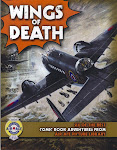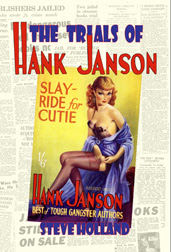 As one of the hugely popular "Brains Trust" on the BBC's Any Questions?, Archibald Bruce Campbell broadcast to 20 million listeners. The show, which debuted on 1 January 1941, featured a panel of regulars—philosopher C. E. M. Joad, zoologist Julian Huxley and Campbell—plus guests answering questions sent in by listeners. The show was hosted by Donald McCullough. Campbell drew on his wide experiences and travels for his answers—often beginning, "When I was in Patagonia...", which became something of a catchphrase. Campbell brought a rather more down-to-earth informality to the proceedings and was never afraid to ask his intellectual colleagues to explain their answers more clearly if he had not understood them. In one period he was receiving 500 letters a week from listeners.
As one of the hugely popular "Brains Trust" on the BBC's Any Questions?, Archibald Bruce Campbell broadcast to 20 million listeners. The show, which debuted on 1 January 1941, featured a panel of regulars—philosopher C. E. M. Joad, zoologist Julian Huxley and Campbell—plus guests answering questions sent in by listeners. The show was hosted by Donald McCullough. Campbell drew on his wide experiences and travels for his answers—often beginning, "When I was in Patagonia...", which became something of a catchphrase. Campbell brought a rather more down-to-earth informality to the proceedings and was never afraid to ask his intellectual colleagues to explain their answers more clearly if he had not understood them. In one period he was receiving 500 letters a week from listeners.Campbell was dropped from the programme in May 1946. Several months later he claimed that he had been "muzzled" by the BBC because of remarks he made during a discussion on the Bikini bomb tests. He had suggested that scientists should be sent to Bikini instead of dumb animals. The survivors, he said, could then describe their experiences. Asked by Sir Malcolm Sargent if he rated scientists lower than rats, he replied: "Some I do." The BBC denied that Campbell had been banished from broadcasting.
Campbell was born in Peckham, London, on 21 January 1881, the son of Hugh Campbell, a former captain in the Royal Navy, later a schoolmaster, and his wife Caroline Mary (nee Southern). He was educated at St. Olave's School in Southwark and at two schools run by naval coaches in Portsmouth but failed his entrance exam for the Royal Navy.
He emigrated to Canada where he had various jobs, including expeditions to northern Canada to survey timber for the Canadian government. He returned to England after three years but failed the medical exam to join the Merchant Navy. Instead, he obtained a job as an assistant purser with the Orient Line and travelled widely on passenger liners in the years before the Great War.
Commissioned in the Royal Naval Volunteer Reserve, Campell was called up and served as paymaster-commander of H.M.S. Otranto, a merchant cruiser patrolling the south Atlantic. He was the senior surviving officer when the Otranto sank with the loss of 362 lives after colliding with a troopship in fog off the island of Islay in October 1918.
Campbell put the sea behind him when he was demobbed in 1920. He took up schoolteaching and then publishing; as A. B. Campbell & Co. he produced Health for All, Handicrafts and Stamp Magazine. Many of his magazines failed during the depression and the company's office was destroyed in a bombing raid in 1941. Seeking additional income, Campbell wrote a play, The Million ot One Chance, based on the mystery of the Marie Celeste, which was performed in Australia and South Africa in 1934. He approached the BBC in 1933 and made his first broadcast--"The Last Voyage of the Otranto"--in 1935. He appeared on Men Talking, Young Ideas and The World Goes By shows. He made his debut television broadcast in December 1936.

Commander A. B. Campbell (right) on Any Questions? with guest Commander Rupert Gould.
He made over 200 appearances on the Brains Trust panel of Any Questions? between 1941 and 1946 and at the same time wrote a regular column for the weekly Star, "Campbell Calling". During the war he was attached to the eastern command welfare station, travelling around England and talking to troops.
He continued to appear on the BBC in a variety of shows: for Children's Hour he gave talks on curiosities he had collected during his travels; "Commander Campbell Talking" was a series for Woman's Hour broadcast in 1952. In 1956 he starred in the ITV series Calling on Campbell, relating seafaring tales. His last broadcast was on the Today programme in February 1959. During lulls in his writing and broadcasting, he worked for an advertising agency earning £12 a week.
Campbell published over two dozen books for adults and children, including a number of volumes of biographical reminiscences: With the Corners Off (1937), Come Alongside (1946), Into the Straight (1950) and When I Was in Patagonia (1953). He contributed to numerous magazines including Men Only, Everybody's, Blackwood's and various daily and weekly newspapers.
Campbell was married twice, although nothing is known about his first marriage. He was a widower when he married May Evelyn Prevost (nee Webb), a secretary, on 30 March 1942. He lived at 10 Northwick Terrace, London N.W.8, and died in a nursing home at Twyford Abbey, Ealing, on 11 April 1966, aged 85.
Non-fiction
The "Animal" Picture Crossword Book for Boys and Girls, illus. by C.A.S. London, Garrick Publishing Co., 1933.
With the Corners Off. My adventurous life on land and sea. London, G. G. Harrap, 1937; Philadelphia, J. B. Lippincott, 1938.
Picture Crosswords. For boys and girls. London, A. B. Campbell & Co., 1939.
The Battle of the Plate, with a foreword by the Rt. Hon. Lord Chatfield. London, Herbert Jenkins, 1940.
The Escape of H.M.S. "Calliope". London, Oxford University Press, 1940.
You Have Been Listening To... London, Chapman & Hall, 1940.
Zeebrugge. St. George's Day, 1918. London, Oxford University Press, 1940.
Bring Yourself to Anchor. London, Chapman & Hall, 1941.
Sailing To-night with the Merchant Navy. London, R. Tuck & Sons, 1944.
Yarns of the Seven Seas. London, Sir I. Pitman & Sons, 1944.
Come Alongside. London & New York, Stanley Paul, 1946.
Commander Campbell's Scrapbook. A volume about a thousand things. London, W. H. Allen, 1950.
In the Tracks of Old Explorers, illus. G. Wylde. London, Sir Isaac Pitman & Sons, 1950.
Into the Straight. London & New York, Stanley Paul & Co., 1950.
Salute the Red Duster. An account of the exploits of the Merchant Navy in the Second World War, with a foreword by Lord Mountevans. London, C. Johnson, 1952.
When I was in Patagonia. London, C. Johnson, 1953.
Fun with Trains. A picture crossword book for boys and girls, illus. Valerie Landon. London, Epworth Press, 1954.
Stories that Jesus Told, in the words of the Authorized Version. With crosswords and puzzles, illus. Ian Armour-Chelu. London, Epworth Press, 1955.
The Story of Joseph. Abridged in the words of the Authorized Version. With crosswords and other puzzles. London, Epworth Press, 1955.
A Book of the Ship. Stories to read, pictures to paint, puzzles to solve, illus. Archie White. London, Epworth Press, 1956.
Customs and Traditions of the Royal Navy, with a foreword by Admiral of the Fleet Lord Chatfield. Aldershot, Gale & Polden, 1956.
Life with Red Indians. Stories to read, pictures to paint, puzzles to solve. London, Epworth Press, 1956.
About Dogs. Stories to read, puzzles to solve, pictures to paint. London, Epworth Press, 1957.
About Horses. Stories to read, puzzles to solve, pictures to paint. London, Epworth Press, 1957.
Great Moments at Sea, illus. Bruce Cornwell. London, Phoenix House, 1957; New York, Roy Publishers, 1957.
The True Book about the North American Indians, illus. N. G. Wilson. London, Frederick Muller, 1961.
Queer Shipmates, illus. by R. M. Sax. London, Phoenix House, 1962.
Pray Silence. Hints for speakers, illus. Sillince. London, Epworth Press, 1964.
Others
The Brains Trust Book, edited by Howard Thomas; introduction by Donald McCullough. Answers to "Any Questions?" by Commander A. B. Campbell, Dr. Julian S. Huxley, Professor C. E. M. Joad, and guests of the Brains Trust. London, Hutchinson, 1942.























































No comments:
Post a Comment